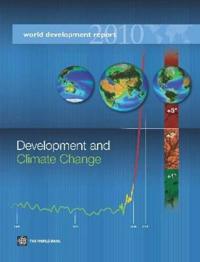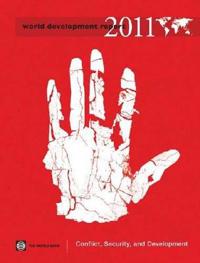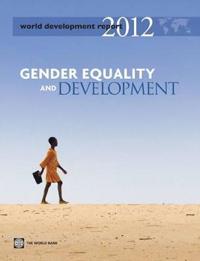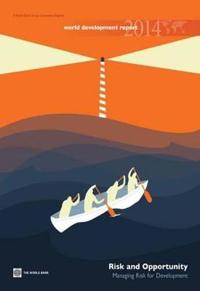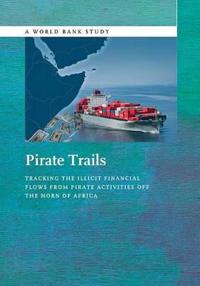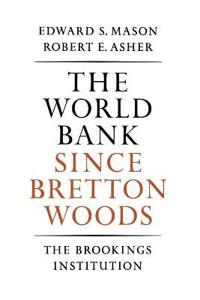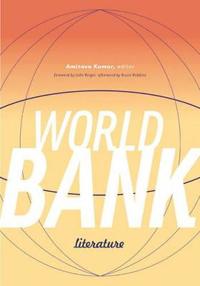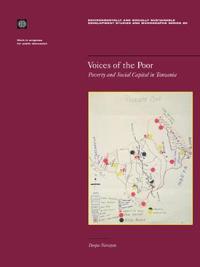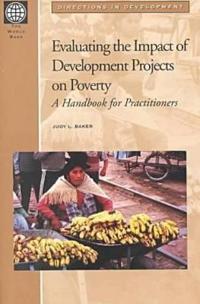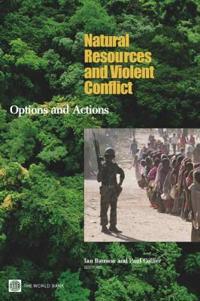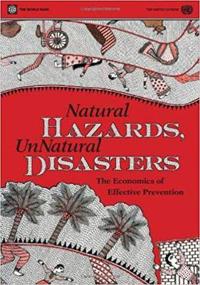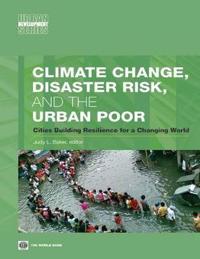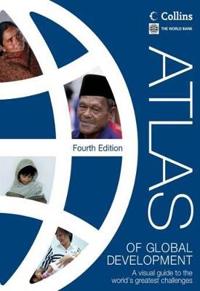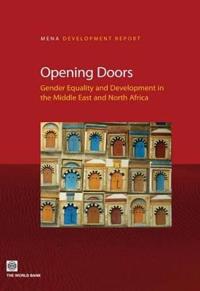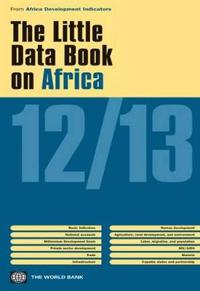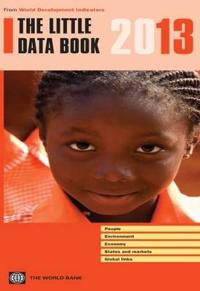World Development Report (Häftad)
avWorld Bank
ISBN: 9780821368077 - UTGIVEN: 2007-11Focuses on three themes, namely identifying new sources of growth for agriculture, making agriculture more effective for poverty reduction, and managing the transitions that accompany the transformation of agriculture as economies develop.[...]
World Development Report (Häftad)
avWorld Bank
ISBN: 9780821379875 - UTGIVEN: 200911Climate change is one of many challenges facing developing countries - but unless it is tackled soon, it will reverse development gains. This book offers a look at both the challenges and the opportunities presented by climate change.[...]
World Development Report (Häftad)
avWorld Bank
ISBN: 9780821388105 - UTGIVEN: 201109The WDR 2012: Gender Equality and Development will focus on the evolution of gender equality across the world in the context of the development process. The report will consider gender equality as a core development goal in itself, and will argue that gender equality matters for the pace of developm[...]
World Development Report 2014: Risk and Opportunity - Managing Risk for Development (Häftad)
avWorld Bank Group
ISBN: 9780821399033 - UTGIVEN: 2013-10The past 25 years have witnessed unprecedented changes around the world many of them for the better. Across the continents, many countries have embarked on a path of international integration, economic reform, technological modernization, and democratic participation. As a result, economies that had[...]
Pirate Trails (Pocket)
avInternational Bank for Reconstruction and Development, The World Bank (COR), International Bank for Reconstruction and Development
ISBN: 9780821399637 - UTGIVEN: 2013-11Traditionally piracy has produced sentimental notions of adventure, freedom, and independence. However, piracy is a criminal act and often involves high levels of violence that can have a devastating impact on the victims. 21st Century piracy has evolved into a highly complex system involving a cast[...]
Collectable Paper Money Guidebook with Collecting Tips: How to Collect World Bank Notes and Bank Checks (Collecting Banknotes & Cheques) (häftad)
ISBN: 9781505820270 - UTGIVEN: 2015-01Battle Against Hunger, The: Choice, Circumstance, and the World Bank (Inbunden)
avDevi Sridhar
ISBN: 9780199549962 - UTGIVEN: 2008-09-11Imperial Nature: The World Bank and Struggles for Social Justice in the Age of Globalization (Pocket)
avMichael Goldman
ISBN: 9780300119749 - UTGIVEN: 2006-09-01Examines the inner workings of the World Bank, the foundations of its global achievements, its propensity for intensifying the problems it intends to cure, and its remarkable ability to tame criticism and extend its own reach.[...]
Unequal Alliance: The World Bank, the International Monetary Fund and the Philippines: No. 19 (Övrig)
avRobin Broad
ISBN: 9780520069534 - UTGIVEN: 1990-04-20In this seminal work, U.S. development specialist Robin Broad chronicles the Philippine experiment with the structural adjustment model of development espoused by the World Bank and the International Monetary Fund.[...]
Hypocrisy Trap: The World Bank and the Poverty of Reform (Övrig)
avCatherine Weaver
ISBN: 9780691138190 - UTGIVEN: 2008-10-27As the preeminent international development agency for the past sixty years, the World Bank has attracted equal amounts of criticism and praise. Critics are especially quick to decry the World Bank's hypocrisy - the pervasive gaps between the organization's talk, decisions, and actions. In the wake [...]
World Bank Literature (häftad)
ISBN: 9780816638376 - UTGIVEN: 2002-12World Bank literature is more than a concept -- it is a provocation, a call to arms. It is intended to prompt questions about each word, to probe globalization, political economy, and the role of literary and cultural studies. As asserted in this major work, it signals a radical rewriting of academi[...]
Voices of the Poor (Häftad)
avWorld Bank
ISBN: 9780821340615 - UTGIVEN: 1997-10Environmentally and Socially Sustainable Development Studies and Monographs Series No. 20. This study describes the practices and processes of participatory methods that tap the knowledge the poor have about their own reality. The Participatory Poverty Assessment uses methods to measure and facilita[...]
Evaluating the Impact of Development Projects on Poverty (Häftad)
avJudy L. Baker, World Bank
ISBN: 9780821346976 - UTGIVEN: 200007Despite the billions of dollars spent on development assistance each year, there is still very little known about the actual impact of projects on the poor. There is broad evidence on the benefits of economic growth, investments in human capital, and the provision of safety nets for the poor. But fo[...]
Cultural Heritage and Development (Häftad)
avMichael M. Cernea, World Bank
ISBN: 9780821349380 - UTGIVEN: 200109Natural Resources and Violent Conflict (Häftad)
avPaul Collier, Ian Bannon, World Bank
ISBN: 9780821355039 - UTGIVEN: 200306Explores the link between conflict and a country's economic dependence on natural resources or other primary commodities and suggests ways for the international community to help reduce the risk of conflict in developing countries.[...]
Guide to the World Bank (Häftad)
ISBN: 9780821366943 - UTGIVEN: 2007-07Following the success of the first edition (with above 12,000 copies sold to date), the World Bank is publishing this completely revised and updated second edition of the "Guide to the World Bank". It provides detailed information on the largest anti-poverty institution in the world, including its g[...]
Climate Change, Disaster Risk, and the Urban Poor (Häftad)
avWorld Bank
ISBN: 9780821388457 - UTGIVEN: 201204Atlas of Global Development (Häftad)
avWorld Bank Publications
ISBN: 9780821397572 - UTGIVEN: 201304COMPLETELY REVISED AND UPDATED Published in association with Harper Collins, the completely revised and updated fourth edition of the Atlas of Global Development is a comprehensive guide to the most critical issues facing our changing world today. A visual guide to global issues easy-to-read graphic[...]
Opening Doors (Häftad)
avWorld Bank
ISBN: 9780821397633 - UTGIVEN: 201303In the last two decades, the Middle East and North Africa (MENA) region has closed many critical gender gaps, especially in ensuring equal access for girls and boys to education and healthcare. Today, the region can be proud that its women are enrolling in far greater numbers in university than ever[...]
The Little Data Book on Africa (Häftad)
avWorld Bank Group
ISBN: 9780821397831 - UTGIVEN: 201303The Little Data Book on Africa 2012/2013 is a pocket edition of Africa Development Indicators 2012/2013. It contains some 115 key indicators on economics, human development, governance, and partnership and is intended as a quick reference for users of the Africa Development Indicators 2010 book and [...]
The Little Data Book (Häftad)
avWorld Bank
ISBN: 9780821398128 - UTGIVEN: 201305This pocket-sized reference on key development data for over 200 countries provides profiles of each country with 54 development indicators about people, environment, economy, technology and infrastructure, trade, and finance.[...]


